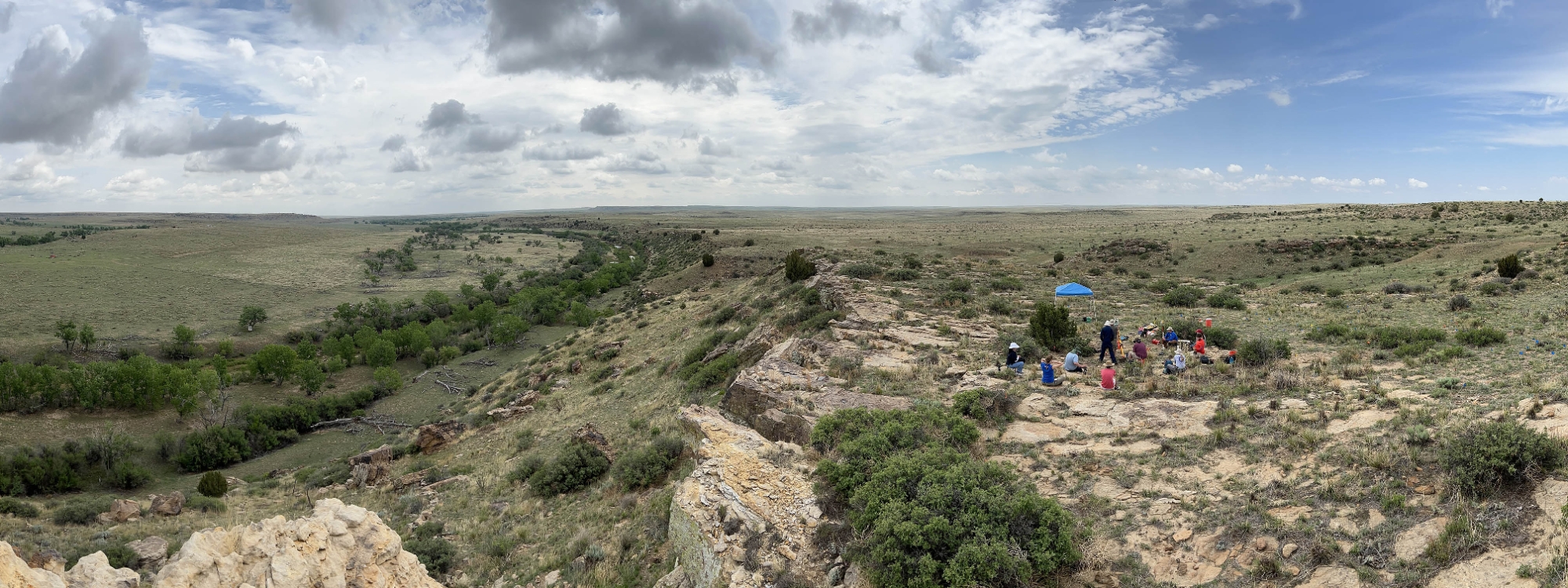
The Department of Anthropology is a vibrant intellectual community that seeks to advance knowledge of and respect for human cultures. Our faculty members have wide-ranging expertise, spanning the sociocultural, linguistic, biological, archaeological, and medical anthropology subfields.
Anthropology has been taught at the University of Oklahoma since 1905 and became its own department in 1927. We offer BA, BS, and MA degrees and have the only PhD anthropology program in the state of Oklahoma. Historically, the main focus of our department has been on the Americas, with a primary focus on Native North America and a secondary emphasis on Latin America. We also continue the historical relationship of anthropology to the larger international arena. Our Native North America focus reflects our location in a state with 39 federally recognized American Indian tribes, and includes undergraduate and graduate courses and mutually beneficial research partnerships among faculty members, graduate students, Native Americans, and tribal governments. Increasingly, our faculty also engage with other communities and populations in the state and region, offering a robust environment for collaborative research.
Our comprehensive undergraduate and graduate curriculum is based on the traditional four-field approach in Archaeology, Sociocultural Anthropology, Biological Anthropology, and Linguistics. In recent years, the department has developed unique degree programs in Human Health and Biology, leveraging anthropology's holistic perspective to understand how biological and cultural diversity shape experiences and outcomes of health and disease. This integrated approach of all our degree programs produces graduates who are critical and holistic thinkers, broadly trained, and prepared to positively contribute to today's multicultural and globalized society.
Anthropology is the study of what makes us human, including the study of human culture, history, and evolution. The discipline draws upon and contributes to knowledge from the social and biological sciences as well as the humanities and physical sciences.

September 15, 2025
Professor Dan Mains new book Nourishing Growth and Suffocating Life: Water, Politics, and Infrastructure in Urban Oklahoma through the University of Nebraska Press will be formally published next month.

October 06, 2025
OU’s Sooner Magazine profiled the work of Patrick Livingood (Associate Professor, Department Chair), Amanda Regnier (Oklahoma Archeological Survey), and Scott Hammerstedt (Oklahoma Archeological Survey) at Sprio.

November 10, 2025
At the Southeastern Archaeological Conference (SEAC) on November 7, 2025 the great work of current and former University of Oklahoma graduate students was recognized. Bobi Deere, JT Lewis, and Sharn Lambert.
Click here to access more news from the Anthropology Department!
Hear from some of our graduates about how they are putting their anthropology degrees to work.

William & Mary (Williamsburg, Virginia)
Teaching Professor of Anthropology, Thomasina E. Jordan Director of the American Indian Resource Center, Administrator of the Native Studies Minor, and Curator of Native American Art at the Muscarelle Museum of Art

Lewis Katz School of Medicine, Temple University
Associate Dean for Health Disparities, Founding Director of Center for Asian Health, and Laura H. Carnell Professor in Urban Health & Population Science

Department of Anthropology, University of California, Irvine
Ph.D. Candidate
Explore our undergraduate majors, courses offered and research opportunities.
Learn more about our graduate program, courses offered and financial assistance.
Explore our research areas, facilities, support services and centers.